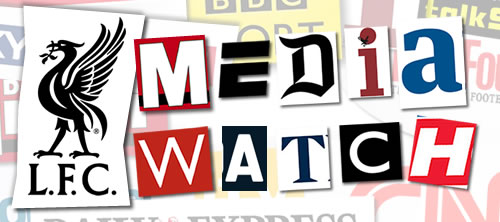LFC museum on winning streak with visitors

This story has been reproduced from today's media. It does not necessarily represent the position of Liverpool Football Club.
Ever since winning the European Cup in 1977, Liverpool Football Club has deliberately courted supporters worldwide.
As the most successful English club ever, Liverpool FC was the first to create a museum in 1997, knowing its support base was big enough to back the attraction.
This is coupled with a stadium tour around Anfield, which was updated earlier this year.
"We'll always be looking at refreshing the tour and making it better," said Tom Cassidy, LFC commercial tourism manager.
"So, if you come back in again, you'll notice tweaks and improvements."
The museum was such a success, it was soon copied by Manchester United and Arsenal.
It was the first club to launch an International Supporters Club, after winning two UEFA Cups in 1973 and 1976, and then the European Cup in 1977.
"Our profile across the world was sky-high and LFC made an intelligent decision to get people abroad to support and see the team play," said Stephen Done, Museum & Stadium Tour curator.
In August, 2006, The Mersey Partnership gave a very special chairman's award to LFC for an outstanding contribution to the visitor economy.
Pre-Capital of Culture data showed LFC's visitor draw and spend in the city was so extraordinary it outranked all other attractions combined.
The museum and stadium tour gives an insight into who visits the city.
"There's a significant increase in overseas visitors. We seem to be swimming in Spaniards, a race previously not known to travel," said Mr Done.
In 2001, LFC won five trophies, and this brought a huge interest in the museum, followed by the Champions League Final in Istanbul, in 2005, which doubled visitor numbers.
"Capital of Culture was astonishingly good for us. There are no signs of it tailing off," said Mr Done.
In 2008, the Museum and Stadium Tour had 156,000 visitors, and last year 1,320,000 people attended games at Anfield.
This story has been reproduced from today's media. It does not necessarily represent the position of Liverpool Football Club.
This story has been reproduced from today's media. It does not necessarily represent the position of Liverpool Football Club.

Tagged: lfc museum , media watch